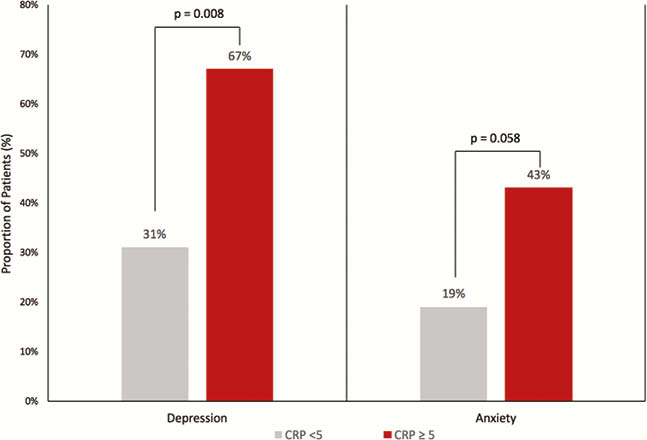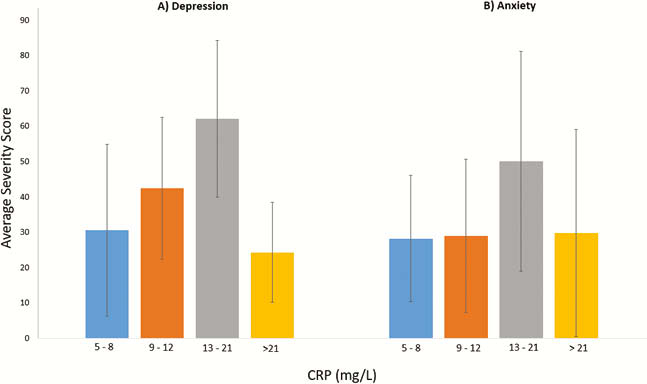P314 C-Reactive protein is associated with depression and anxiety in patients with inflammatory bowel disease
T. Rodriguez, J. Karpin, C. Traboulsi, V. Rai, D. Rubin
Inflammatory Bowel Disease Center, University of Chicago Medicine, Chicago, USA
Background
Depression and anxiety are comorbidities of inflammatory bowel disease (IBD). Though previous studies have proposed a relationship between anxiety, depression and IBD, causality and directionality are unknown. We used a novel computerised adaptive testing technology to screen IBD patients for depression and anxiety and compared the screening results to recent measures of C-reactive protein (CRP).
Methods
Consecutive patients at our tertiary IBD clinic were asked to complete the validated CAT-MH™ survey from Adaptive Testing Technologies (Chicago, IL); we then reviewed disease and patient characteristics. CRP measures from within 6 months of survey administration were used and levels ≥5 mg/l were considered positive. Patients who are CRP non-reactive were excluded. Pearson Chi-Square test was used to assess correlation.
Results
134 patients (75 women, 112 Caucasian, 84 Crohn’s disease) participated in the study, 85 of whom had no prior history of psychiatric disorders. We identified 51 patients with depression (46 mild, 3 moderate, 2 severe) and 36 subjects with anxiety (24 mild, 10 moderate, 2 severe). Of the 134 patients recruited for this study, 57 had CRP reported. Median time between CRP measurement and CAT-MH™ administration was 2 days (IQR = 70). Categorical analysis stratified patients with positive and negative CRP who are also positive for depression and/or anxiety. Compared with patients with negative CRP values, patients with positive CRP were more likely to also test positive for depression and anxiety. These results were statistically significant for depression (


Conclusion
We illustrate the significant association between CRP and depression and anxiety severity scores on the CAT-MH™ survey. These findings suggest a positive relationship between inflammation and depression and anxiety in IBD patients. Physicians should consider patients with elevated CRP levels at risk for these mental health conditions.


